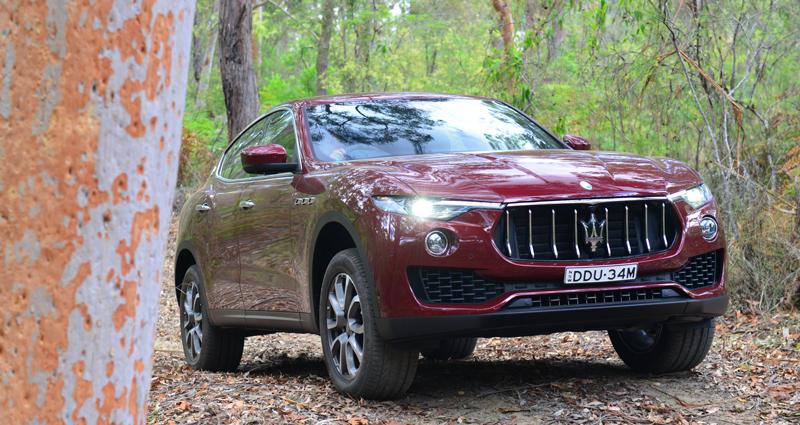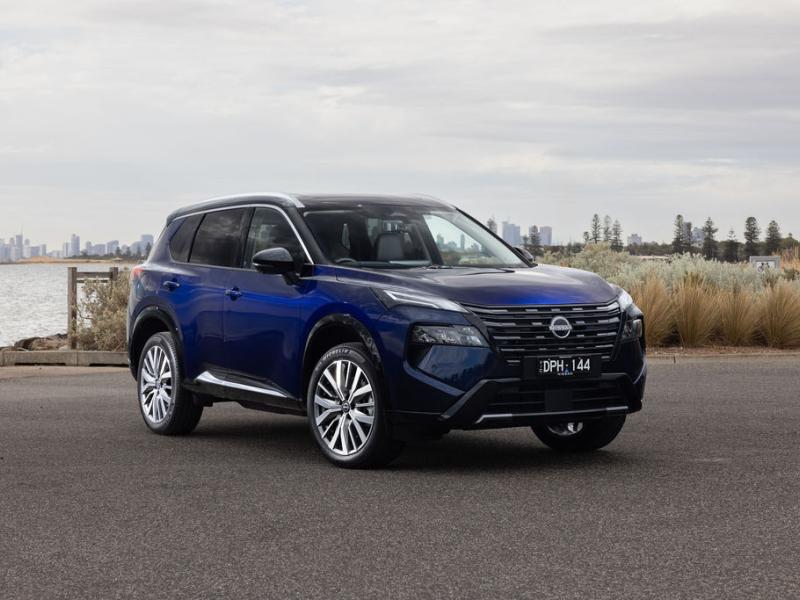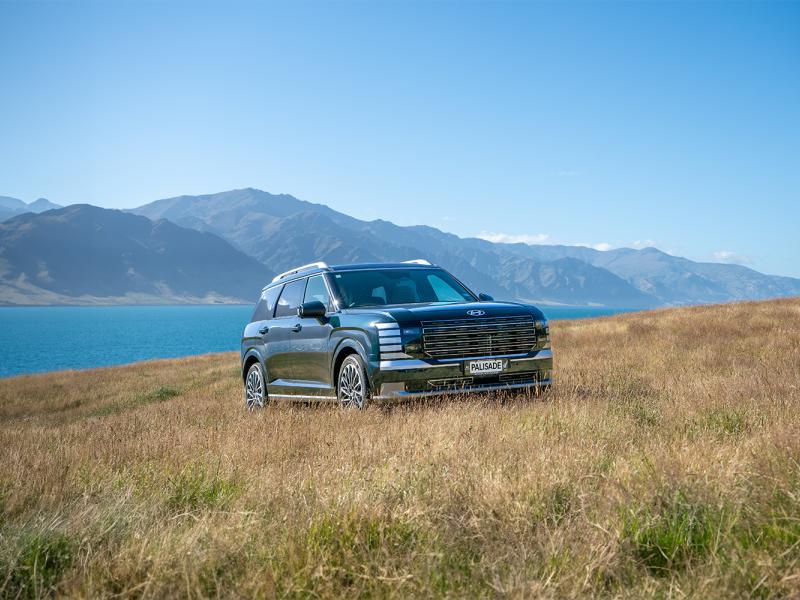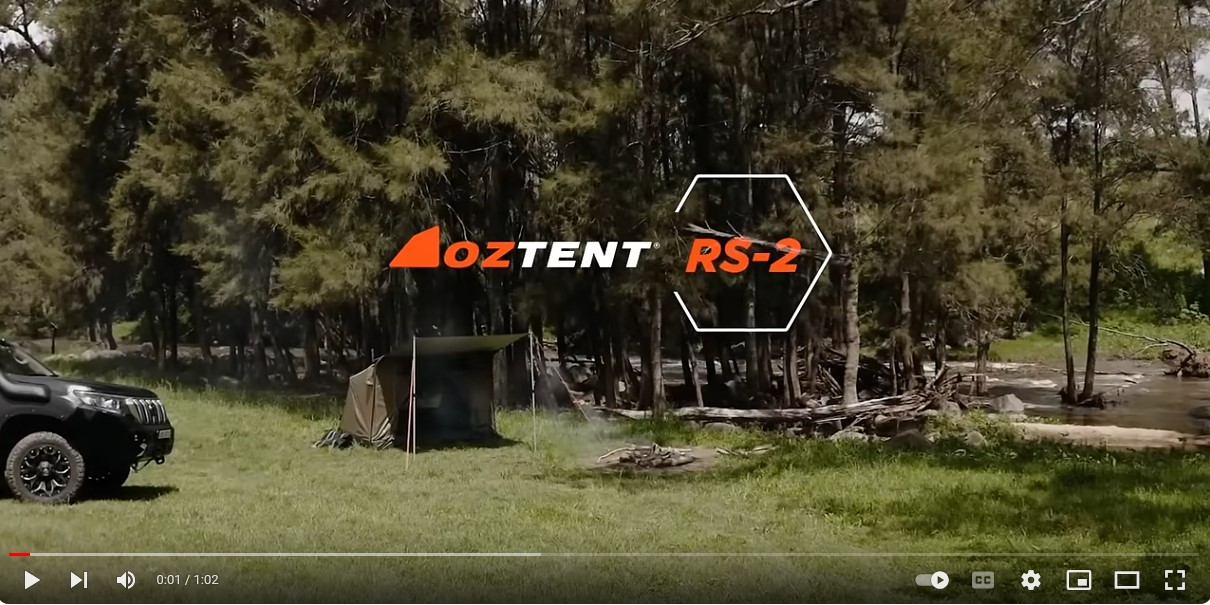Story and photos by Damien O’Carroll
The explosion in popularity of SUVs has led a number of manufacturers we previously never imagined entering the segment to decide to have a go, particularly in the sports and luxury arena, with the likes of Porsche, Jaguar, Bentley and even Rolls-Royce having a crack at it.
Now we can add another previously unthought of name to the Sporty/Luxury SUV arena - Maserati.
While Maserati has positioned itself as a sort-of luxury car maker as of late, it has always veered more towards the sporty end of the spectrum, as befitting its roots as a sports car manufacturer, meaning that even its luxury cars have been somewhat more aggressive and overtly angry than most other offerings in the same segment.
So does this mean the Levante is a road-going pretend SUV with silly large diameter alloy wheels, road tyres and no off-road ability?
Well, actually no. But with a little bit of yes.
Swings both ways
While the Levante is unapologetically luxurious and more than a bit sporty, Maserati has rather surprisingly fitted it with all-terrain tyres, as opposed to purely road-oriented tyres. This, combined with the air suspension that can raise the Levante to an equally surprising 247mm ride height shows that Maserati haven't forsaken at least some off-road ability in their first SUV.
The Levante will be coming to New Zealand as a single model with the option of Sport or Luxury packs.
The standard car costs $136,990 and sits on 19-inch wheels. It is powered by Maserati’s 3.0-litre diesel V6 engine that pumps 202kW of power and 600Nm of torque through an 8-speed automatic transmission to all four wheels.
Standard kit includes an 8.4-inch multimedia touch screen with satellite navigation, dual zone climate control, leather upholstery, heated front seats, radar cruise control, hill descent control, automatic wipers and headlights, keyless entry and a power tailgate.
The Luxury pack adds 20-inch alloy wheels, a chrome grille, premium leather trim, body-coloured lower panels, a Harman Kardon stereo, wood trim, 12-way electric seats and a panoramic sunroof.
The Sport pack adds 21-inch alloy wheels, a unique grille and front and rear skid plates, a body-coloured rear spoiler, 12-way adjustable electric sports seats, a power adjustable steering wheel, colour-matched lower body, red brake calipers, shift paddles on the steering wheels and a Harman Kardon sound system.
Both the Sport and Luxury models cost $155,990.
A cut above
On the inside the Levante is spectacularly well built and luxurious, boasting what is probably the best interior in the current Maserati line up.
While the high gloss wood trims are a bit cheesy, the open pore woods are stunningly attractive, while the good old fallbacks of piano black and carbon fibre are still nicely agreeable.
A simple and attractive dash layout compliments the high quality of the materials used, with pretty much everything being highly customisable, depending on how much you want to spend, as is the Maserati way.
Maserati has raided the Fiat Chrysler parts bin, however, with the touchscreen, a large number of switches and stalks and the awkward transmission selector that makes it frustratingly difficult to find reverse in a hurry all being instantly familiar to anyone who has driven a Jeep Grand Cherokee…
Out on the road, the Levante’s diesel V6 is nicely strong and refined, albeit suffering from a noticeable degree of turbo lag down low. Once up and running, however, the big torque makes things effortless and relatively rapid, as well as impressively refined.
Much like the Jaguar F-Pace, however, the Levante’s ride quality suffers from its efforts to be sporty, particularly on the larger wheels.
Although the back roads north of Sydney where we drove the Levante were hardly representative of the best Australia had to offer, the Levante felt distinctly brittle and sensitive to imperfections, even on the 19-inch wheels, although thanks to the Maserati’s air suspension it was never as intrusive as the Jaguar.
As part of the launch we were also allowed some track time in the Levante, as well as some light off roading.
On the track it was impressively agile and well behaved, with its lower-than-most-in-the-segment ride height and nicely-weighted, accurate steering.
High riser
Off the sealed stuff the Levante also acquitted itself impressively well, with the air suspension allowing a 40mm lift over the standard height, giving the Maserati that handy 247mm ride height I mentioned earlier.
The Levante has Normal, Sport and Off road settings on the dial in the centre console, but the car can actually recognise when it is off road and adjust itself accordingly.
Again, the huge alloy wheels and low-profile tyres ultimately count against the Levante off road, but it still proved itself to be surprisingly competent off the road, with the hill descent system being particularly impressive.
Tipping the Levante's aggressive snout down the fairly steep slope used to demonstrate it, the HDC arrests progress gently and undramatically, slowly easing the Maserati down the rutted slope with minimal drama or the noisy groaning and aggressive brake grabbing of a lot of systems. The speed of descent can be adjusted using the cruise control buttons on the steering wheel.
The amount of ground clearance, impressive hill descent system and the composed, confident feel the Maserati had on the off road loop made me wonder actually how capable it would be fitted with some more serious tyres. But given that thought isn't ever likely to enter the average owner's head, we are unlikely to ever find that out for sure.
While it is somewhat compromised by the eternal struggle between sporty and luxurious that rages in this segment, the Levante is probably the closest so far to achieving a perfect balance. Throw in some actual off-road ability and a decent amount of ground clearance and you have a vehicle that is surprisingly capable on the road, track and the dirt.
To read every story in the July 2017 issue of NZ4WD go to Zinio.com (June 16) or purchase your own hard copy at the Adrenalin store.







